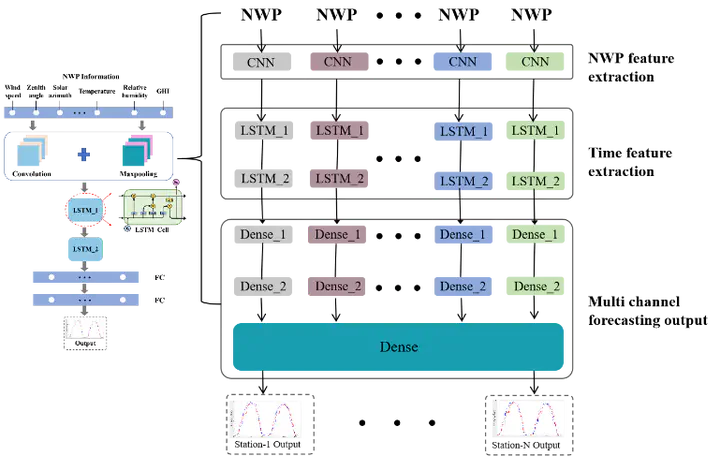摘要
Due to the uncertainty and volatility of photovoltaic (PV) power generation systems, accurately forecasting the PV power output has become one of the key challenges for improving system efficiency. Unlike single-site PV forecasting, PV cluster forecasting not only enhances the precision and dependability of energy management but also contributes to power balance in the provincial power grid. While deep neural networks have emerged as the mainstream method for PV forecasting, they remain constrained to single-site forecasting. In this study, a short-term PV forecasting model is developed by combining two neural networks, utilizing numerical weather prediction (NWP) as the foundation, to accurately forecast PV output for each site. Additionally, a fully connected layer is employed to analyze the spatial correlation among sites within the PV cluster, thereby adjusting the forecasted values of each individual site and establishing a more precise power generation forecasting model. Comparative experiments validate the effectiveness of the proposed approach, demonstrating an error reduction of nearly 1% compared to single-site forecasting and showcasing improved performance in PV cluster power generation forecasting.




